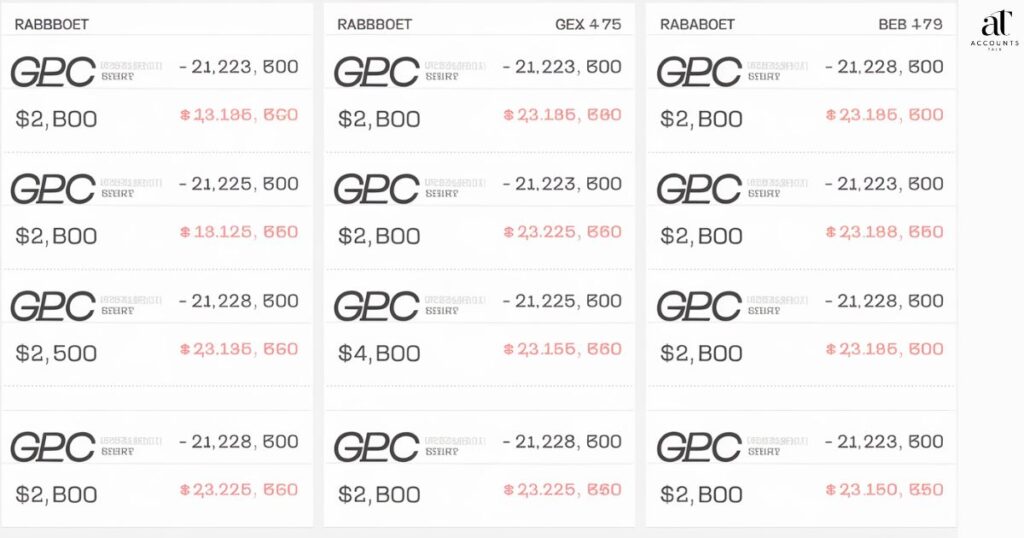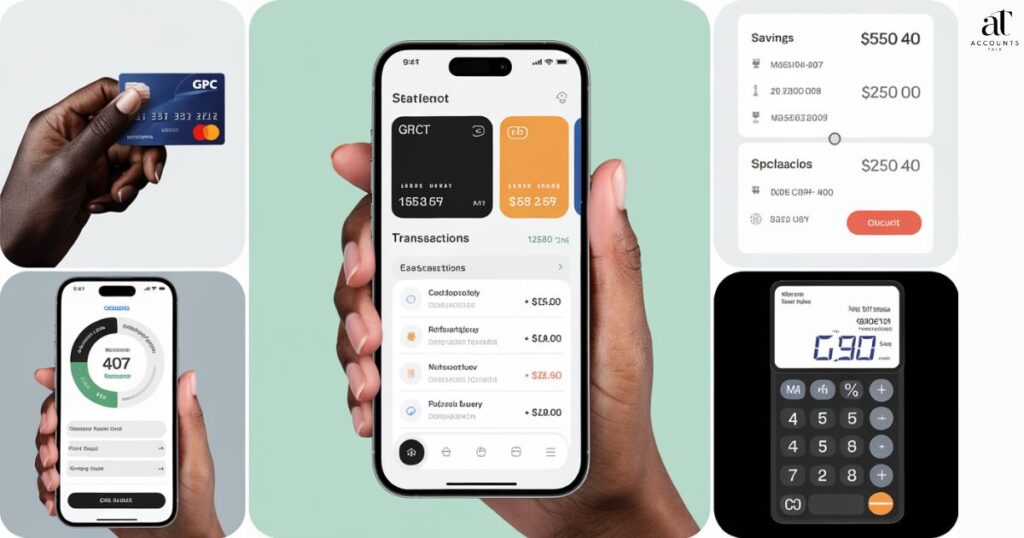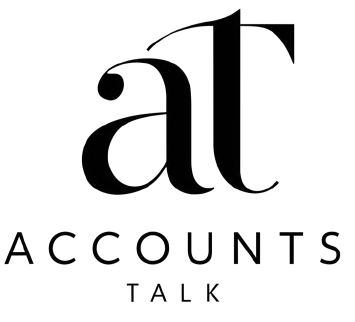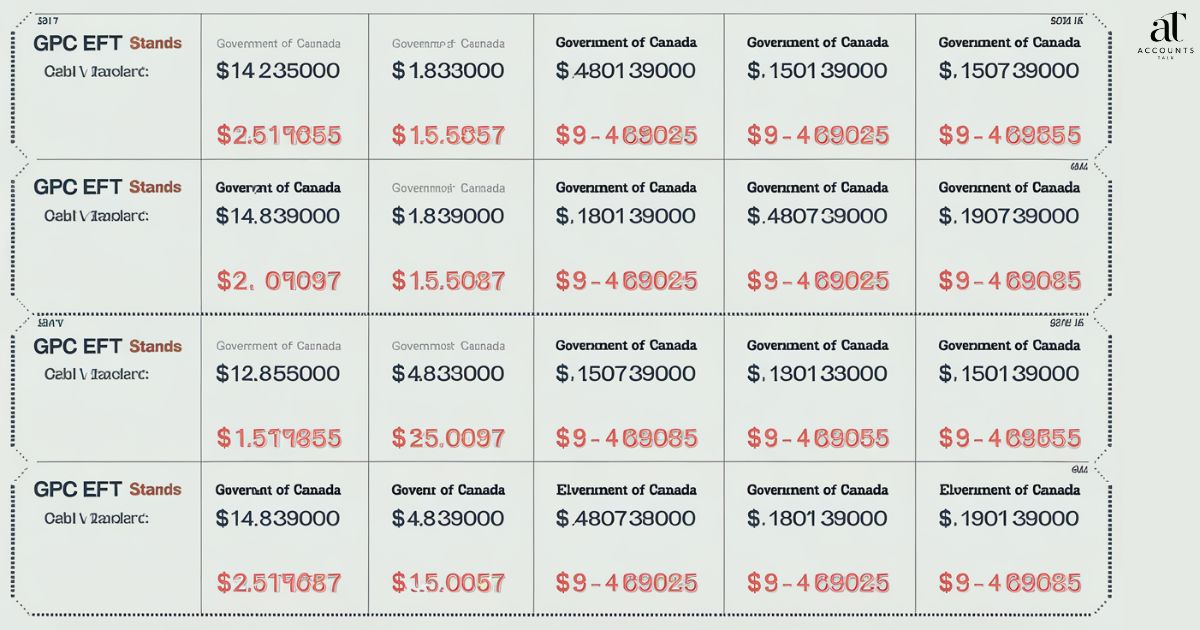Have you ever glanced at your bank statement and scratched your head at an entry labeled “GPC EFT“? You’re not alone. In today’s digital age, understanding the various transactions that flow through our accounts is crucial for maintaining financial health and spotting potential issues.
What is the GPC EFT Charge On Bank Statement?

To understand GPC EFT transactions, let’s break it down:
- GPC stands for Government Purchase Card
- EFT means Electronic Funds Transfer
When you see a GPC EFT charge on your bank statement, it typically indicates a transaction involving a government agency or an authorized contractor using a government-issued purchase card. This system streamlines the procurement process for government entities, making it easier and more efficient to pay for goods and services.
“GPC EFT transactions are the digital handshake between government spending and vendor payments, designed to reduce red tape and increase efficiency.” – Financial expert Jane Doe
Understanding GPC EFT Transactions on Bank Statements
When you spot a GPC EFT entry on your statement, it usually follows a specific format. Here’s what you might see:
GPC EFT 1362288070DCT JOHN DOE
Let’s break this down:
- GPC EFT: Indicates the transaction type
- 1362288070: A unique transaction ID
- DCT: Often stands for “Direct Credit Transfer“
- JOHN DOE: The name of the government agency or contractor
This format can vary slightly depending on your bank, but these elements are typically present in some form.
Is “GPC GPC EFT 1362288070DCT JOHN DOE” fraud?
Seeing an unfamiliar transaction on your bank statement can be alarming, but a GPC EFT entry isn’t inherently fraudulent. However, it’s always wise to be vigilant. Here are some red flags to watch for:
- Unexpected transactions: If you’re not a government vendor or employee, a GPC EFT charge might be suspicious.
- Unusual amounts: Government purchases typically follow strict budgetary guidelines.
- Frequency: Multiple GPC EFT transactions in a short period could be a cause for concern.
If you suspect fraud, contact your bank immediately and report the suspicious activity.
The Benefits of GPC EFT Transactions

GPC EFT transactions offer numerous advantages for both government agencies and vendors:
1. Easy Transactions
- Streamlined process: Reduces paperwork and bureaucratic hurdles
- Faster approvals: Automated systems speed up the purchasing process
2. Better Money Flow
- Quick payments: Vendors receive funds faster than with traditional methods
- Improved cash management: Agencies can track spending in real-time
3. Staying Safe from Frauds
- Enhanced security: EFT systems typically have robust fraud detection measures
- Clear audit trail: Every transaction is logged and easily traceable
4. Digital Record
- Automatic logging: Transactions are recorded instantly
- Simplified bookkeeping: Digital records make tax preparation and audits easier
5. Better Relationships with Vendors
- Timely payments: Prompt payments build trust and goodwill
- Reduced disputes: Clear transaction records minimize payment disagreements
How To Handle GPC EFT Transactions
If you’re a vendor working with government agencies, here’s how to navigate GPC EFT transactions:
Vendor Compatibility
To accept GPC EFT payments, you’ll need:
- A bank account capable of receiving EFT payments
- Registration in the System for Award Management (SAM)
- Compliance with government procurement regulations
Keeping Records
Proper record-keeping is crucial. Consider using:
- Specialized accounting software for government contractors
- Regular reconciliation of GPC EFT transactions
- Detailed invoicing systems that match GPC EFT entries
Case Study: Small Business Success with GPC EFT
TechSolutions Inc., a small IT firm, saw a 30% increase in government contracts after implementing a system to efficiently handle GPC EFT transactions. By streamlining their payment process and maintaining meticulous digital records, they became a preferred vendor for several federal agencies.
Wrap Up
Understanding GPC EFT transactions is crucial in today’s digital financial landscape. Whether you’re a government contractor, a curious consumer, or someone who just spotted an unfamiliar entry on their bank statement, knowing what these transactions represent can help you manage your finances more effectively.
Remember:
- Always review your bank statements regularly
- If you’re a vendor, ensure your systems are compatible with GPC EFT transactions
- Keep detailed records of all transactions for smooth financial management
By staying informed and vigilant, you can navigate the world of GPC EFT transactions with confidence, whether you’re on the receiving end of government payments or simply keeping an eye on your personal finances.
FAQs
What is gpc on my bank statement?
GPC on your bank statement stands for Government Purchase Card. It indicates a transaction made using a card issued by a government agency for official purchases.
What is GPC in banking?
In banking, GPC refers to Government Purchase Card, a credit card-like payment system used by federal agencies to make small purchases for official use.
What does EFT mean on a bank statement?
EFT on a bank statement means Electronic Funds Transfer. It’s a digital system for transferring money from one bank account to another without paper money changing hands.
What is the meaning of EFT transaction?
An EFT transaction is any transfer of funds initiated through electronic terminals, phones, computers, or magnetic tape for the purpose of ordering, instructing, or authorizing a financial institution to debit or credit an account.
By understanding these terms and processes, you’ll be better equipped to manage your finances and interpret your bank statements accurately. Always remember, if you have any doubts about a transaction on your statement, don’t hesitate to contact your bank for clarification.
More Post:

Mia Hazel is a finance expert and the author behind insightful content that simplifies complex financial concepts. With a passion for empowering readers to make informed financial decisions, Mia breaks down everything from budgeting to investments with clarity and precision.
Her work is dedicated to helping individuals navigate the financial world with confidence and achieve their financial goals. Follow her for practical tips and advice on all things finance.

